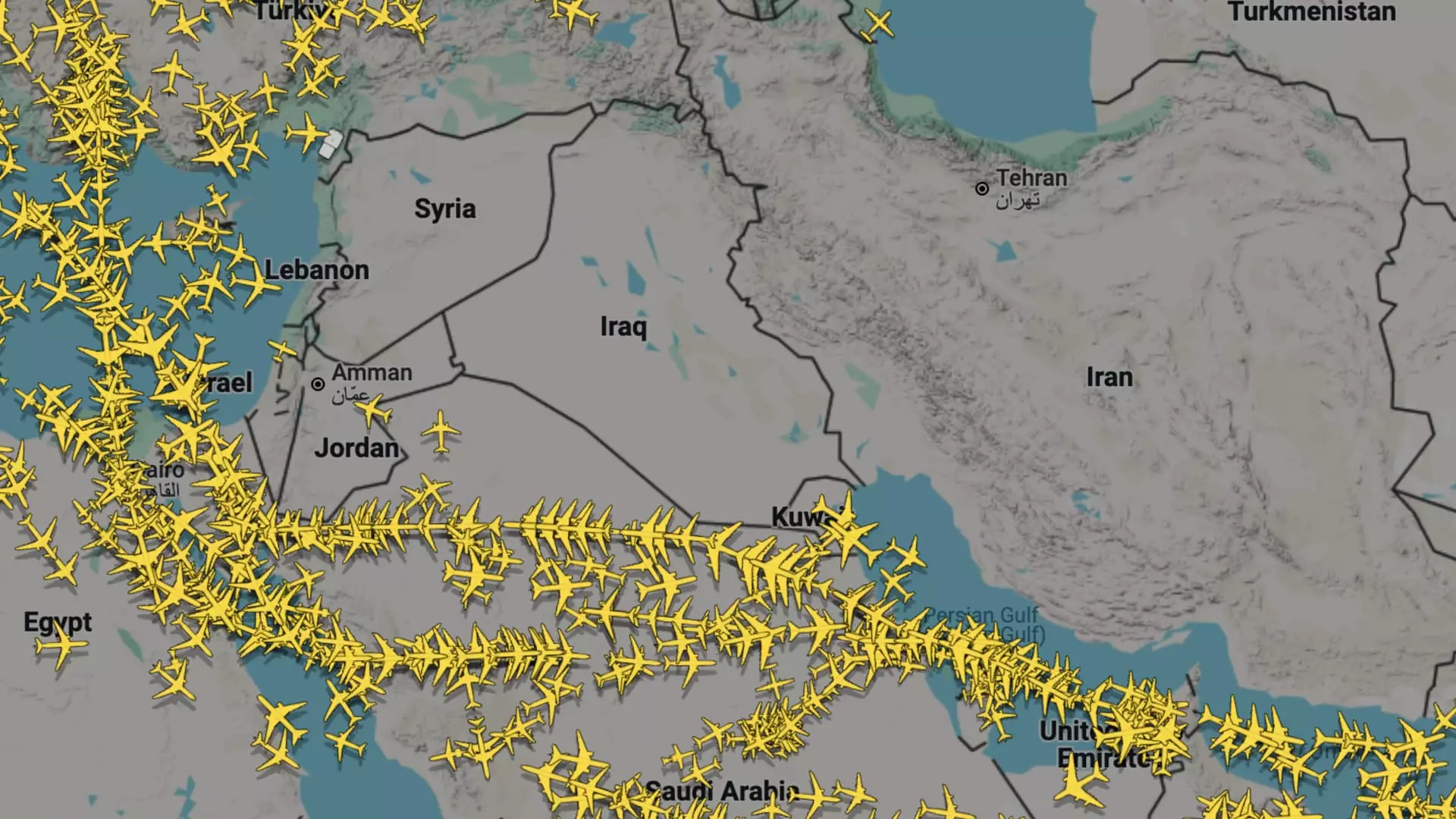In a dramatic display of geopolitical tensions, airlines worldwide have abruptly halted flights to Israel, showcasing the fragile state of security in the region. The recent missile strikes by Israel on Iran were not just another escalation in an ongoing saga of conflict. They resulted in a palpable ripple effect within the aviation industry, quickly prompting major airlines such as Delta and United to cancel their routes to Tel Aviv. The implications of these cancellations, which extend to other carriers globally, amplify the urgent need for reassessment of air travel safety in a region already riddled with instability.
Travelers, caught in this chaos, now find themselves grappling with uncertainty. The swift response from airlines is indicative of a palpable fear; the notion that a simple ticket purchase could unravel into a life-threatening decision looms heavily over any prospective traveler. El Al, Israel’s flagship carrier, has ceased operations indefinitely, urging wary customers to steer clear of Tel Aviv’s principal airport. The message resonating from the airline presented not merely as an advisement, but rather as a somber warning—a sentiment that should provoke ire and empathy alike.
Economic Fallout and Human Cost
The aviation industry’s swift retreat from Israel reflects more profound implications—economic disruption, job losses, and the inhumane cost of conflict. As these airlines face financial pressure, the repercussions will likely extend beyond mere flight cancellations. For the locals dependent on the tourism industry, these restrictions mean loss of income and the crippling of livelihoods. The question remains: who will truly pay the price for this geopolitical maneuvering?
Furthermore, with tensions escalating not just in Israel but throughout the Middle East and even into Ukraine, the airline industry’s hesitation speaks volumes. It is no longer the simple logistics of flight paths that necessitate action, but rather a complex web of international relations and safety concerns. The recurring pattern of canceling flights to avoid war-torn regions presents a disheartening reflection of a world still beset by conflicts with human lives and finances hanging by a thread.
The Need for Stronger Leadership
Amid this turmoil, one must scrutinize the efficacy of leadership both within these airlines and on the global stage. Where are the strong, decisive leaders who can foster negotiations to quell these tensions? Instead of combatting fear with fear, we should be calling for diplomatic dialogues that seek to mend these seemingly irreparable rifts. The military strategy, often touted as necessary, has undoubtedly failed to yield lasting peace, leaving humanitarian crises in its wake.
The political climate may be vexing, but the consequences of inaction resonate within every flight turned back and every dollar lost. There exists a collective yearning for a future where travel no longer means navigating a minefield of bombs and drones but embracing the beauty of cultural exchange across borders. This longing is a testament to the human spirit’s resilience—a reassurance that despite the grim realities of aerial disruption, hope remains firmly in our grasp as long as we strive for true leadership and progressive policies.
These airlines’ retreat may symbolize a surrender to fear, but it could also ignite the conversations we desperately need to provide a safer, more interconnected world.

Leave a Reply